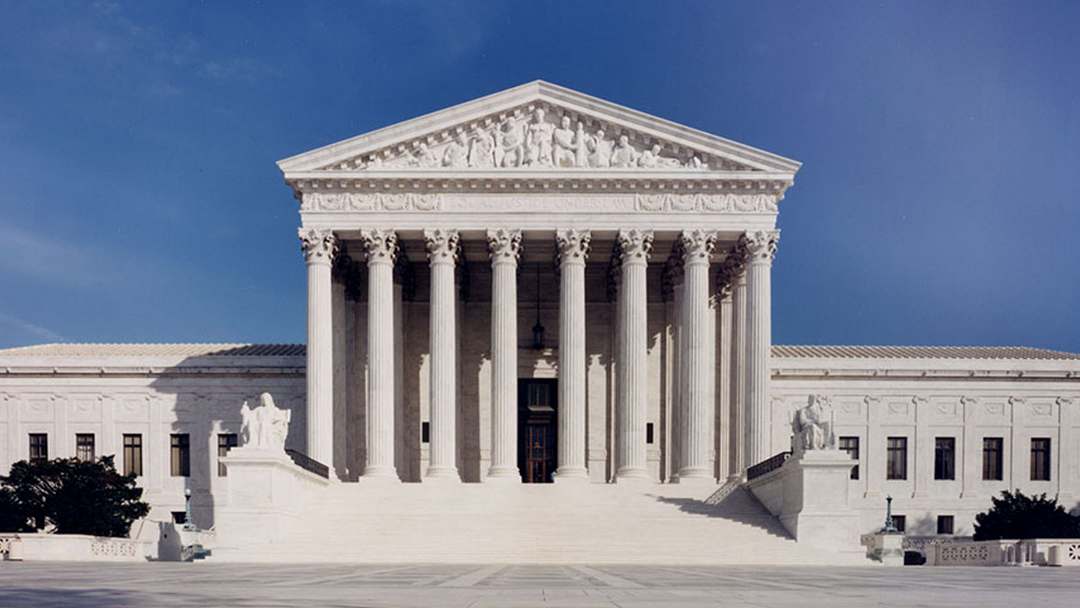No Results Found
The page you requested could not be found. Try refining your search, or use the navigation above to locate the post.

Presumptions, those inferences drawn from established facts, play a crucial role in both civil and criminal cases in Michigan.
However, their application is carefully regulated by the Michigan Rules of Evidence, specifically Rules 301 and 302.
This article delves into these rules, providing a clear understanding of their purpose, scope, and practical implications for legal professionals and anyone interested in the intricacies of Michigan’s evidentiary landscape.
Rule 301: Presumptions in Civil Cases
This rule governs the burden of proof related to presumptions in civil proceedings.
It states that unless a statute or other rule dictates otherwise, the party against whom a presumption is directed has the burden of producing evidence to rebut it.
This burden of production, however, is distinct from the burden of persuasion, which remains on the party who originally had it.
In essence, a presumption shifts the responsibility to present evidence to the opposing party, but the ultimate responsibility to convince the court of their claim rests with the party bearing the initial burden.
The Michigan Rules of Evidence Handbook further clarifies the application of Rule 301.
It emphasizes the importance of distinguishing between rebuttable and conclusive presumptions.
Rebuttable presumptions, as described above, can be overcome by evidence, while conclusive presumptions are mandatory inferences that must be accepted by the jury.
The handbook also provides examples of common presumptions, such as the presumption of sanity, the presumption of legitimacy of a child born in wedlock, and the presumption of ownership arising from possession of property.
Have your rights been violated?
Have your driving priviledges been revoked?
Has your professional license been suspended?
Have you been charged with a crime?
Call our office to see if we can help
Komorn Law 248-357-2550
Rule 302: Presumptions in Criminal Cases
For criminal proceedings, Rule 302 takes a different approach. It governs presumptions against a defendant, whether recognized at common law or created by statute.
Unlike Rule 301, Rule 302 doesn’t impose a burden of production on the defendant to rebut a presumption.
Instead, it emphasizes that the prosecution retains the ultimate burden of proving all elements of the offense beyond a reasonable doubt. Unless it’s political of course.
The handbook elaborates on this key distinction.
It explains that the jury must be instructed that they may, but are not required to, infer the existence of the presumed fact from the basic facts presented.
This ensures that the jury retains its ultimate power to decide guilt or innocence based on the totality of the evidence, without being coerced by a presumption (in a perfect world).
Key Takeaways:
Civil cases: Presumptions in civil cases shift the burden of production, not the burden of persuasion, to the party against whom the presumption is directed.
Criminal cases: Presumptions against defendants in criminal cases do not shift the burden of proof. The jury must be instructed that they may infer the presumed fact, but are not obligated to do so.
Further Considerations:
The Michigan Rules of Evidence Handbook offers valuable insights into the nuances of these rules, including the specific wording of jury instructions, the interplay of presumptions with other evidentiary rules, and the potential limitations of certain presumptions.
For legal professionals navigating complex cases involving presumptions, studying the handbook and consulting relevant case law is crucial for ensuring a comprehensive understanding and effective application of these rules.
By understanding the intricacies of Rules 301 and 302, legal professionals and anyone interested in Michigan’s evidentiary rules can navigate presumptions with confidence, ensuring fair and just outcomes in both civil and criminal proceedings.
Important:
This article provides a simplified overview of the Michigan Rules of Evidence for informational purposes only. It should not be interpreted as legal advice. When facing legal matters, always consult with a qualified attorney for professional guidance.
The Michigan Rules of Evidence are subject to change over time. Always consult the latest official version for accurate information.
Here is the link to the Michigan Rules of Evidence Handbook. Check the footer for the latest update.
Related Articles
The page you requested could not be found. Try refining your search, or use the navigation above to locate the post.
The page you requested could not be found. Try refining your search, or use the navigation above to locate the post.

Understanding the Michigan Rules of Evidence is crucial for anyone involved in legal proceedings within the state.
This article focuses on two key rules: 201** (Judicial Notice of Adjudicative Facts)** and 202** (Judicial Notice of Law)**, providing a concise and informative overview of their purpose, scope, and application.
Rule 201: Judicial Notice of Adjudicative Facts
This rule empowers the court to take certain facts, known as “adjudicative facts,” as true without requiring formal proof during a trial.
These facts must be:
The court can take notice of these facts either:
Rule 201: Judicial Notice of Adjudicative Facts
This rule empowers the court to take certain facts, known as “adjudicative facts,” as true without requiring formal proof during a trial.
These facts must be:
Have your rights been violated?
Have your driving priviledges been revoked?
Has your professional license been suspended?
Have you been charged with a crime?
Call our office to see if we can help
Komorn Law 248-357-2550
Rule 202: Judicial Notice of Law
Similar to Rule 201, this rule allows the court to acknowledge certain legal matters without requiring formal presentation of evidence. These matters include:
Law in force: This encompasses the common law, constitutions, and public statutes of all jurisdictions within the United States.
Private acts and resolutions: These are specific legislative documents passed by Congress or the Michigan Legislature.
Local ordinances and regulations: These are rules established by governmental subdivisions or agencies within Michigan.
Foreign laws: The court can take notice of foreign laws upon proper presentation of evidence.
The court may take notice of these legal matters either:
On its own initiative: In situations where the law is readily apparent and relevant to the case.
At the request of a party: If the party provides sufficient information and allows opposing parties time to prepare.
Key Differences between Rules 201 and 202:
Type of knowledge: Rule 201 deals with factual matters, while Rule 202 deals with legal matters.
Scope: Rule 201 applies to facts within the court’s jurisdiction, while Rule 202 has a broader scope covering national, state, local, and even foreign laws.
Onus of proof: For Rule 201, the burden of proof lies with the party requesting judicial notice to provide the necessary information. For Rule 202, the court may take notice on its own initiative, but parties can still object or challenge the accuracy of the legal matter.
Important:
This article provides a simplified overview of the Michigan Rules of Evidence for informational purposes only. It should not be interpreted as legal advice. When facing legal matters, always consult with a qualified attorney for professional guidance.
The Michigan Rules of Evidence are subject to change over time. Always consult the latest official version for accurate information.
Here is the link to the Michigan Rules of Evidence Handbook. Check the footer for the latest update.
Related Articles
The page you requested could not be found. Try refining your search, or use the navigation above to locate the post.
The page you requested could not be found. Try refining your search, or use the navigation above to locate the post.

For the first time, scientists have uncovered the precise neurological impacts of cannabis use that give rise to the phenomenon famously referred to as the “munchies,” as revealed by an innovative study backed by federal funds.
Researchers at Washington State University (WSU) have recently published their findings in the journal Scientific Reports, shedding valuable light on the neural mechanism through which cannabis activates a specific cluster of neurons in the hypothalamus region of the brain, resulting in an increased stimulation of appetite.
The hunger-inducing effects of marijuana are well-known among consumers. However, recent findings from animal research provide valuable insights that could potentially lead to targeted therapeutics for addressing conditions such as anorexia.
RESTORE YOUR SECOND AMENDMENT RIGHTS
RESTORE YOUR PROFESSIONAL LICENSE
RESTORE YOUR DRIVER LICENSE
RESTORE YOUR PAST (Expungements)
Call our Office for a free case evaluation
Komorn Law (248) 357-2550
Professional License Restoration / Rights Restoration / Record Expungments / Driver License Restoration
After exposing mice to vaporized cannabis, the researchers utilized calcium imaging technology, akin to a brain MRI, to monitor the changes in neuron activity. Through their investigation, they discovered that marijuana vapor attached to cannabinoid-1 receptors in the brain and activated Agouti Related Protein neurons in the hypothalamus, commonly known as “feeding” neurons.
Calcium imaging has been used to study the brain’s reactions to food by other researchers, but this is the first known study to use it to understand those features following cannabis exposure.
As part of this research, it was discovered that the cannabinoid-1 receptor, which is a target of cannabis, regulates the activity of Agouti Related Protein neurons. These particular neurons are well-known for their involvement in controlling feeding behavior and are located in the hypothalamus. This finding sheds light on the intricate connection between the cannabinoid system and the regulation of these essential cells in the brain.
With the help of this information, scientists employed a “chemogenetic” technique, acting as a molecular light switch, to specifically target these neurons in animals exposed to cannabis. By deactivating these neurons, the appetite-stimulating effects of cannabis were no longer present.

Komorn Law – Federal Courts and All Michigan Courts
“We now know one of the ways that the brain responds to recreational-type cannabis to promote appetite,” said Davis.
This work builds on previous research on cannabis and appetite from Davis’ lab, which was among the first to use whole vaporized cannabis plant matter in animal studies instead of injected THC—in an effort to better mimic how cannabis is used by humans.
In the previous study, researchers discovered genetic alterations in the hypothalamus as a response to cannabis. Therefore, in this investigation, Davis and his colleagues specifically concentrated on this particular region.
Now tell us why it makes food taste so much better!
Read more here – Cannabis activates specific hunger neurons in brain
The page you requested could not be found. Try refining your search, or use the navigation above to locate the post.

Navigating the legal system can be daunting, especially when it comes to understanding the rules governing evidence.
This article sheds light on the first six articles of the Michigan Rules of Evidence (MRE), providing a helpful summary for legal professionals, litigants, and anyone interested in gaining insights into how evidence is handled in Michigan courts.
Rule 101: Scope and Definitions
Firstly, MRE 101 establishes the scope of the rules, specifying that they apply to all proceedings in Michigan courts, with exceptions outlined in Rule 1101. It also clarifies key terms like “civil case” and “record,” ensuring consistent interpretation throughout.
Rule 102: Purpose
MRE 102 sets the guiding principle for interpreting the rules: fairness, efficiency, and truth-seeking. It emphasizes administering proceedings justly, minimizing unnecessary cost and delays, and ultimately, ensuring accurate outcomes.
Rule 103: Rulings on Evidence
This rule outlines how to preserve objections and offer proof. To challenge a ruling admitting evidence, a party must object promptly, state the specific reason, and offer a motion to strike. In case of exclusion, the party must inform the court of the evidence’s content through an offer of proof, unless already clear from the context.
Rule 104: Preliminary Questions
MRE 104 addresses situations where the judge must decide a preliminary question, such as witness competency or hearsay exceptions, before determining whether evidence is admissible. The rule allows both parties to present evidence on the preliminary issue, ensuring a fair and informed decision by the judge.
Rule 105: Limiting Admissibility
This rule acknowledges that some evidence, though relevant, might be prejudicial or confusing. MRE 105 empowers the judge to limit the admissibility of such evidence in various ways, like allowing only specific portions, instructing the jury, or imposing an “admonition” to disregard certain aspects. This ensures a balanced presentation of evidence that focuses on the relevant issues.
Rule 106: Remainder of or Related Writings
Finally, MRE 106 addresses situations where a party introduces part of a writing or recording. This rule grants the opposing party the right to introduce any other portion or related document that provides context and fairness. This prevents distortion and ensures the jury hears the complete picture.
Conclusion
These six initial rules of the MRE lay the foundation for a fair and efficient legal system in Michigan. By understanding their purpose and application, individuals can navigate the courtroom with greater confidence and contribute effectively to the pursuit of justice.
Important:
This article provides a simplified overview of MRE 101-106 for informational purposes only. It should not be interpreted as legal advice. When facing legal matters, always consult with a qualified attorney for professional guidance. It is suggested that you read the unsummarized rule. Here is the link to the Michigan Rules of Evidence Handbook
Have your rights been violated?
Have your driving priviledges been revoked?
Has your professional license been suspended?
Have you been charged with a crime?
Call our office to see if we can help
Komorn Law 248-357-2550
Related Articles
The page you requested could not be found. Try refining your search, or use the navigation above to locate the post.
The page you requested could not be found. Try refining your search, or use the navigation above to locate the post.

The Petitions of the Week column highlights a selection of cert petitions recently filed in the Supreme Court. A list of all petitions we’re watching is available here.
Organized crime, from the mafia to small-time money laundering schemes, often evades criminal prosecution. To bolster efforts to fight organized crime, Congress passed the Racketeer Influenced and Corrupt Organizations Act, known as RICO, more than 50 years ago.
In addition to the criminal penalties for violating RICO, the law also authorizes private individuals to bring civil lawsuits for an injury to their “business or property” as a result of the defendant’s “racketeering activity,” which the law defines broadly to include a wide range of criminal offenses.
This week, we highlight petitions that ask the court to consider, among other things, whether someone can sue under RICO to recover lost earnings.
Marketed as “a revolution in medicinal hemp-powered wellness,” Dixie X is a CBD supplement that claims to offer a variety of health benefits. After learning about Dixie X in a magazine, Douglas Horn began using the supplement in 2012 to soothe pain and inflammation from a car accident. Although the ad claimed that the supplement does not contain any THC (the active ingredient in marijuana),
RESTORE YOUR SECOND AMENDMENT RIGHTS
RESTORE YOUR PROFESSIONAL LICENSE
RESTORE YOUR DRIVER LICENSE
RESTORE YOUR PAST (Expungements)
Call our Office for a free case evaluation
Komorn Law (248) 357-2550
Professional License Restoration / Rights Restoration / Record Expungments / Driver License Restoration
Satisfied, Horn began using Dixie X. Shortly after, he failed a random drug test at work and was fired. Suspecting the supplement, Horn sent a batch to an independent lab, which found that the product contained THC.
Horn went to federal court in New York, arguing that the company that sold Dixie X, Medical Marijuana, Inc. – which, despite its name, deals only in hemp-based CBD products – was responsible for his termination. Part of his lawsuit alleged violations of state law, including a claim that he was fraudulently induced to purchase the supplement while unaware of its risks. But Horn also argued that the company injured his “business or property” under RICO by conspiring to commit federal mail and wire fraud that resulted in the loss of his salary.
In Medical Marijuana, Inc. v. Horn, the maker of Dixie X asks the justices to grant review and reverse the 2nd Circuit’s ruling. The company argues that economic harm stemming from a personal injury has no business, so to speak, under RICO. “If quintessential personal injuries count as injuries to ‘business or property’ just because economic damage inevitably results,” the company writes, “Congress’ careful limitation on civil RICO claims would be toothless.”
Read the Rest here at ScotusBlog

Komorn Law – Federal Courts and All Michigan Courts
Yim v. City of Seattle, Washington
23-329
Issue: Whether Seattle’s restriction on private owners’ right to exclude potentially dangerous tenants from their property violates the 14th Amendment’s due process clause.
Amer v. New Jersey
23-351
Issues: (1) Whether a defendant is always “unable to stand trial” under Article VI(a) of the Interstate Agreement on Detainers while a pretrial motion is pending; and (2) whether a defendant has been “brought to trial” within 180 days of his request for final disposition of charges under Article III(a) of the agreement at the point when jury selection begins.
Medical Marijuana, Inc. v. Horn
23-365
Issue: Whether economic harms resulting from personal injuries are injuries to “business or property by reason of” the defendant’s acts for purposes of a civil treble-damages action under the Racketeer Influenced and Corrupt Organizations Act.
Bhattacharya v. State Bank of India
23-390
Issue: Whether, to establish a “direct effect in the United States” under 28 U.S.C. § 1605(a)(2), a plaintiff must make an extratextual showing that either the sovereign engaged in a U.S.-based “legally significant act,” or that the U.S. effects were “legally significant” in addition to being direct.
The page you requested could not be found. Try refining your search, or use the navigation above to locate the post.